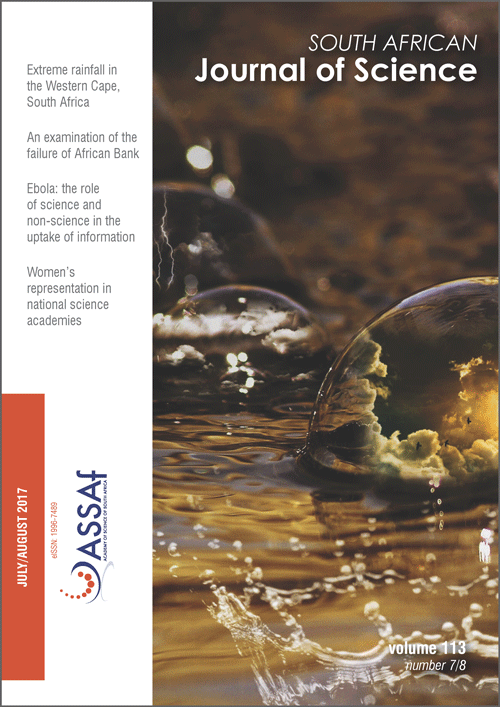The importance of monitoring the Greater Agulhas Current and its inter-ocean exchanges using large mooring arrays
DOI:
https://doi.org/10.17159/sajs.2017/20160330Keywords:
ASCA, SAMBA, GoodHope, Crossroads, long-term monitoringAbstract
The 2013 Intergovernmental Panel on Climate Change report, using CMIP5 and EMIC model outputs suggests that the Atlantic Meridional Overturning Circulation (MOC) is very likely to weaken by 11–34% over the next century, with consequences for global rainfall and temperature patterns. However, these coupled, global climate models cannot resolve important oceanic features such as the Agulhas Current and its leakage around South Africa, which a number of studies have suggested may act to balance MOC weakening in the future. To properly understand oceanic changes and feedbacks on anthropogenic climate change we need to substantially improve global ocean observations, particularly within boundary current regions such as the Agulhas Current, which represent the fastest warming regions across the world’s oceans. The South African science community, in collaboration with governing bodies and international partners, has recently established one of the world’s most comprehensive observational networks of a western boundary current system, measuring the Greater Agulhas Current System and its inter-ocean exchanges south of Africa. This observational network, through its design for long-term monitoring, collaborative coordination of resources and skills sharing, represents a model for the international community. We highlight progress of the new Agulhas System Climate Array, as well as the South African Meridional Overturning Circulation programme, which includes the Crossroads and GoodHope hydrographic transects, and the South Atlantic MOC Basin-wide Array. We also highlight some of the ongoing challenges that the programmes still face.
Significance:- Large mooring arrays have been successfully deployed to monitor the Greater Agulhas Current system.
- Capacity development is ongoing, although established, in marine science around South Africa.
- Challenges exist with regard to retention of skilled staff, resources and funding.
Published
Issue
Section
License

All articles are published under a Creative Commons Attribution 4.0 International Licence
Copyright is retained by the authors. Readers are welcome to reproduce, share and adapt the content without permission provided the source is attributed.
Disclaimer: The publisher and editors accept no responsibility for statements made by the authors
How to Cite
- Abstract 2458
- PDF 1205
- EPUB 223
- XML 285












.png)